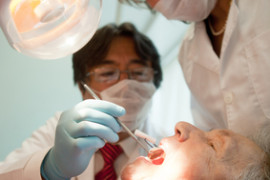A new study published in Infection and Immunity has shed more light on the relationship between periodontal disease and atherosclerosis.
This study shows that gingipains, which are proteases secreted by P. gingivalis that play a major role in downregulating the body’s response to the pathogen, are essential in P. gingivalis’ involvement in the pathogenesis of atherosclerosis.
In an interview with MedicalResearch.com, lead researcher and PhD candidate Boxi Zhang explained the takeaways from this study:
“Porphyromonas gingivalis is the major pathogen causing periodontal disease. This bacterium also plays a significant role in the pathogenesis of atherosclerosis. In this study, we infect human aortic smooth cells with P. gingivalis and show that this periodontal pathogen affects gene and protein expression in human aortic smooth muscle cells associated with increased inflammation and atherosclerosis.”
He also explained the significance of this research to clinical healthcare professionals:
“Periodontal disease might be a risk factor for cardiovascular disease. The specific mechanisms at a molecular level that we found in this study are also vital to understand how periodontal pathogens induced other systemic diseases. People should pay more attention to oral health.”
Knowing exactly what makes P. gingivalis such a virulent pathogen is highly useful for researchers, but you don’t need to understand the molecular mechanisms behind oral-systemic health to understand that oral health needs to be just as much a priority as diet, nutrition, and exercise when it comes to heart disease prevention.
Healthcare is moving forward with unparalleled rapidity. Dental professionals will consistently progress to a more important spot in overall healthcare, and a lot of that will be because research like this allows us to look at periodontal disease—and total body health—from an entirely different perspective.



